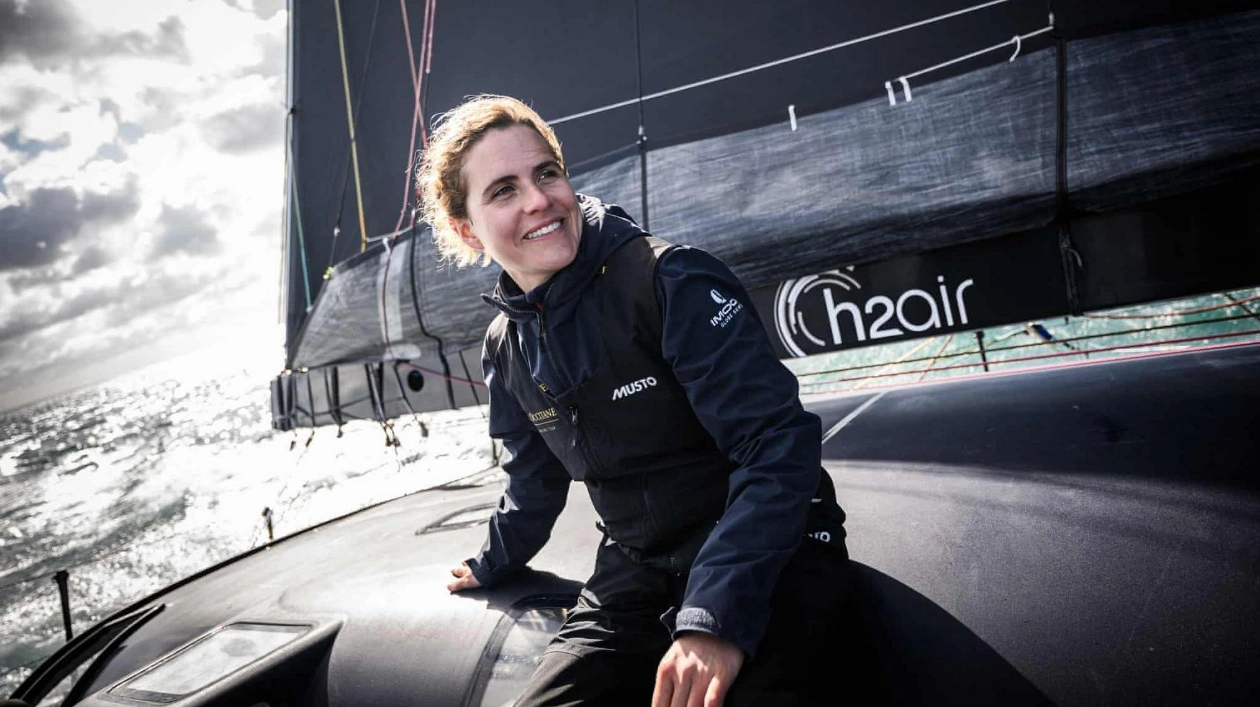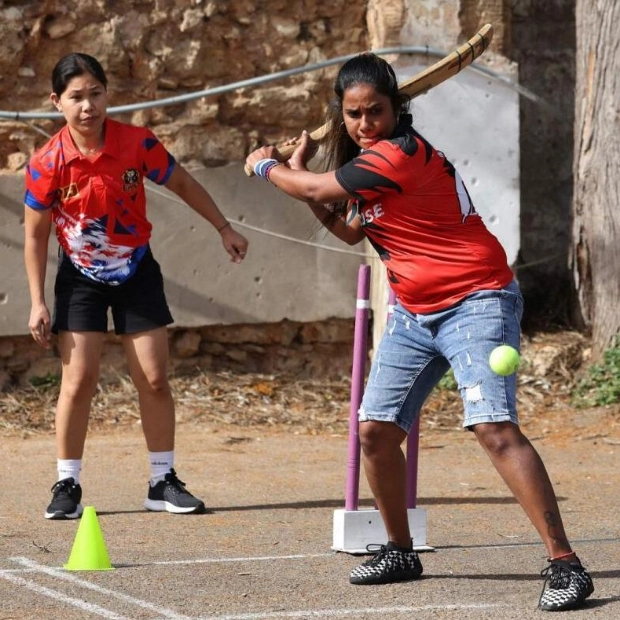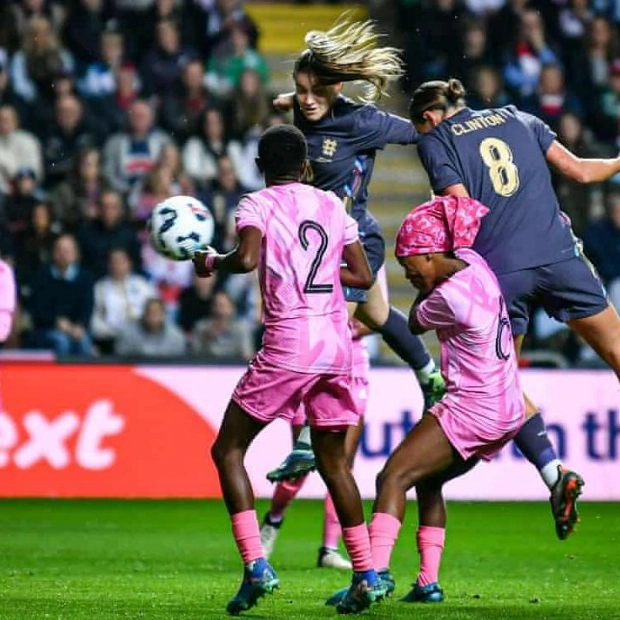There was a moment when Clarisse Crémer paused her boat and wept uncontrollably. She sought refuge below deck, shielding herself from the relentless wind and waves that threatened to tear her vessel apart. The solo yachtswoman found herself mid-race, navigating between France and New York in May. Failing to complete the Transat CIC would mean she wouldn't qualify for the 2024 Vendée Globe, the quadrennial round-the-world race. However, a massive crack in her bulkhead, over four meters long, had shifted her focus from racing to survival. “It’s always incredibly humbling,” Crémer reflects, recalling her emotions that day. “Sailors are driven by competition, always pushing ourselves and our boats to the limit. But then you realize you’re just a tiny speck on a vast ocean, surrounded by endless water.” For the next four days, she carefully guided her boat across 500 miles to the Azores, her only chance for repairs. Her technical team worked tirelessly in shifts for three days, and Crémer eventually crossed the finish line in New York with just hours to spare.
On Sunday, the French sailor will compete in the Vendée Globe for the second time. In the previous edition, she became the fastest woman to sail solo around the world, surpassing Ellen MacArthur’s 2005 record. Her participation in the race is nothing short of a miracle, and a testament to her resilience against the chauvinism she faces in ocean racing. Last year, Crémer was dismissed by her team just months after becoming a mother. This year, an anonymous smear campaign accused her of cheating in the Vendée Globe by receiving assistance from her husband and fellow racer, Tanguy Le Turquais. This period has been the most challenging of her 34-year-old life, filled with unexpected adversities. The tears she shed halfway across the Atlantic were a result of frustration. “I’m a fighter and usually keep pushing forward,” she says, “but it’s incredibly difficult to avoid moments of discouragement. Why can’t things be easier sometimes?”
Back home in Lorient, on the Brittany coast, Crémer is cherishing precious moments with Tanguy and their daughter, Mathilde, who is about to turn two, before embarking on a three-month journey. Solo ocean racing is an incredibly demanding sport, with nearly half of the 200 skippers who entered the Vendée Globe failing to complete the race. However, Crémer has faced more challenges off the water than on it. In the 2020-21 edition of the Vendée Globe, a record six of the 33 entrants were women; four of them completed the race. Upon returning home after 87 days at sea, she expressed her desire to start a family to her sponsor, Banque Populaire, who agreed to support her. While her husband could still use the full period to qualify for his first Vendée – he was at sea when Mathilde was born – Crémer’s pregnancy significantly limited her window of opportunity.
In February 2023, Banque Populaire announced they would be replacing her, stating she “could not hope to obtain the necessary points.” Crémer’s passionate public response – questioning whether equality for women meant “not getting pregnant” – drew attention in a sport where sailors are expected to be grateful to their wealthy team owners. Some suggested Crémer had made herself too difficult to sponsor. “I thought, ‘Is this really the world we live in? Do they want us to just stay silent?’” A few days later, she received a call from British yachtsman Alex Thomson, who had retired after his fifth Vendée Globe to set up his own team. Impressed by Crémer’s authenticity and honesty, Thomson was outraged by her dismissal and asked if she still wanted to race. “She was quite guarded, quite low,” Thomson recalls. “She said, ‘Of course I would, Alex, but I have no team, no boat, no sponsor. I have nothing.’” Within seven weeks, Thomson secured sponsorship from L’Occitane and assembled a team. When the public backlash against Banque Populaire caused them to withdraw from the race, he bought her boat back – “probably the biggest financial gamble I’ve ever taken in my life.”
The biggest challenge was rebuilding Crémer’s confidence. She sought help from former ocean racer turned development coach Sidney Gavignet for mental preparation. “That’s one of the things I’ve worked on the most since the last Vendée,” she says. “I’m the same person, but I approach challenges and issues very differently now.” However, a second crisis was looming. While training in Gosport in February, Crémer’s management team informed her that she had been accused of receiving routing advice during the last Vendée Globe; any form of guidance, even from her own team, is against the rules. Screenshots of their WhatsApp chats were sent to the president of the French sailing federation and leaked to various media outlets. “When I first heard about it, I thought, ‘This is a joke, because I know I haven’t cheated,’” she says. “Then you see the screenshots and think, ‘This is a nightmare. Are they really twisting reality like this?’ It was incredibly painful because I had just started to rebuild my life after the pregnancy story.”
Thomson says: “We felt like we were on the upward trajectory and this just destroyed her.” Living in Lorient, the hub of the ocean racing community, “she was being judged by everyone, everyone had an opinion.” An investigation was launched, with the threat of a substantial ban if Crémer was found guilty. At the hearing, she and Tanguy presented the true context of the messages. “It was a relief to defend ourselves in front of actual human beings,” says Crémer, who was cleared of any misconduct. “I was in tears, thinking, ‘Help us, just take us out of this.’” Crémer suspects she knows who was behind the leak and is amazed they have not been held accountable. “The motivation for me is very clear. People thought they had the opportunity to stop me from doing the Vendée Globe.”
To Thomson, the episode has been a wake-up call. “While I was competing on the circuit, I would have said it was an environment where women were treated equally. In reality, I just didn’t have my eyes open. Seeing what’s happened to Clarisse was a real travesty.” Crémer notes that much of the support she received was from “people who were not French” – including Sam Davies, the British yachtswoman who also had a baby between her first and second Vendée Globes. Davies is a leading member of The Magenta Project, a charity that supports women in sailing careers. It has called for a change to the Vendée Globe rules to ensure what happened to Crémer does not happen again.
Perhaps no one is more important in Crémer’s life than Lena, her 27-year-old sister-in-law, who becomes Mathilde’s “third parent” when she and Tanguy are racing. “It’s not always easy to say goodbye,” Crémer says. “Of course, you worry and feel sad about missing some moments of her childhood. But there are positive aspects too, like the bond Mathilde has with Lena and her grandmother.” Solo racing is all about self-reliance, but Crémer knows that, with her husband as a fellow competitor, she will need even more resilience this time around. “During the last Vendée, Tanguy was a huge emotional support. But now I’m really trying to shield him from my emotions and not complain too much when he’s at sea.”
Thomson and his team have seen a “transformation” in Crémer since they first came together. “I’ve got a lot of respect for her because she jumped back in with both feet,” he says. ‘She’s a pretty unique person. To change the course of this sport is not easy, but Clarisse really stands out.” For Crémer, time on the ocean brings its own rewards – the ever-changing light, the wildlife encounters. But it is how sport can bring about change that truly motivates her. “What does it mean to sail around the world by yourself? What value does it add to society? Nothing. But if you choose to support women, whatever the challenges they face, if you choose to show people how to do that – that’s so much more important.”
Source link: https://www.theguardian.com






